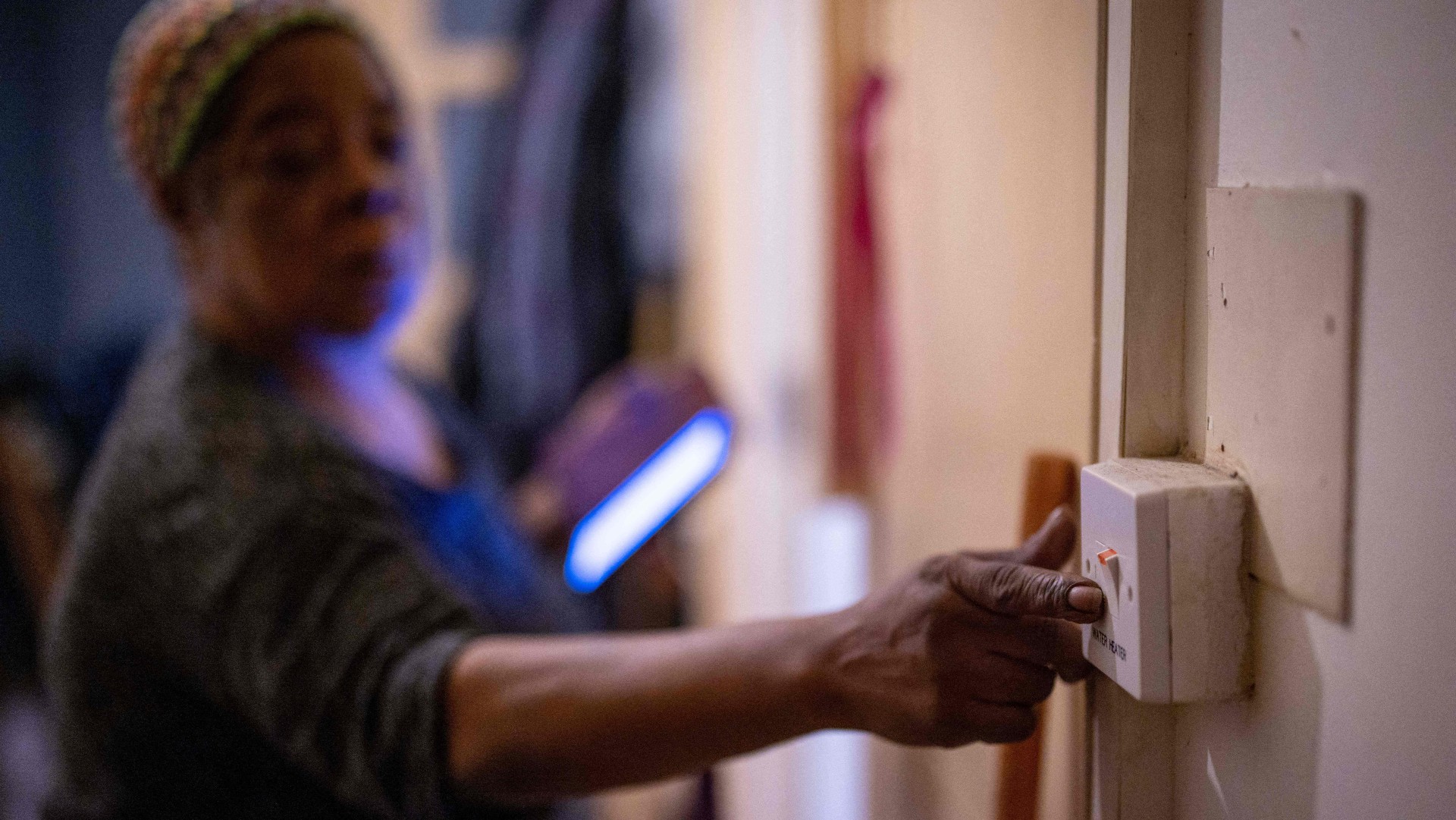The National Grid’s scheme to pay households to cut energy use
Arrangement promises discounts but some who took part said it was ‘not worth it’

A free daily email with the biggest news stories of the day – and the best features from TheWeek.com
You are now subscribed
Your newsletter sign-up was successful
Some households will be paid to cut back their energy use again this evening after warnings that electricity supply may be “tighter than normal”.
Following its first ever activation on Monday, the National Grid will run its Demand Flexibility Service (DFS) again, between 4.30pm and 6pm on Tuesday because it needs “greater options to manage the network as normal”.
But how does the scheme work and how much money can you save?
The Week
Escape your echo chamber. Get the facts behind the news, plus analysis from multiple perspectives.

Sign up for The Week's Free Newsletters
From our morning news briefing to a weekly Good News Newsletter, get the best of The Week delivered directly to your inbox.
From our morning news briefing to a weekly Good News Newsletter, get the best of The Week delivered directly to your inbox.
What is the DFS scheme?
Launched last November, the scheme entitles some households with smart meters to discounts if they cut their use of electricity by turning off energy-intensive appliances during set times.
With “low temperatures boosting demand for power, and output from wind and solar farms looking a little flaky”, the grid needs to “cut demand to avoid blackouts”, said The Spectator.
“The idea is to moderate demand when it’s at its highest during very cold winter days,” explained Sky News. The National Grid hopes this will allow it to access additional flexibility when national demand is at its highest.
“Traditionally,” said the Independent, the grid operator “keeps everything running by creating extra supply”, but “the new system allows it to reduce the amount of electricity that is being taken out”.
A free daily email with the biggest news stories of the day – and the best features from TheWeek.com
Who is eligible?
To take part in the scheme, you must have a smart meter and have signed up to the scheme through your supplier.
If you have signed up, your provider should have contacted you asking you if you want to take part in tonight’s event.
Some 26 suppliers are taking part, from British Gas to Hugo Energy App and Octopus Energy. There is a full list of suppliers taking part on the National Grid website. The scheme is in place until at least March 2023.
How much can I save?
The National Grid said suppliers will be offered a “guaranteed minimum price” of £3 per unit (kWh) saved, reported the inews site, but it added that “suppliers are able to choose how much of this saving to pass on, or to pay out more”.
“It is not hard to spot a slight issue with this offer,” wrote Ross Clark in The Telegraph: “the more electricity you use on a normal Monday, the easier it will be for you to cash in today”.
Clark argued that “it perversely rewards the well-off at the expense of the poor” because “if you own an 18 bedroom mansion you can easily claim your fee by switching off the lights in the east wing and delaying recharging your Tesla until 7pm. If you normally use only one electric light, there will be no savings for you.”
Suzanne Murray, an NHS administrator from Southampton who took part in the scheme with E.ON yesterday, told the BBC that it was “not worth it”.
“E.ON have told me that if I hit my target of 20% reduction… I could earn around 5p,” she said.
The National Grid has placed a £10 daily cap on how much householders could potentially earn, said Home Building and Renovating.
Is this the future of energy use in this country?
Further action is being taken to address shortages, said ITV News. National Grid said that as well as activating the Demand Flexibility Service, it has ordered three UK coal plants to begin warming up in case they are needed to boost the energy supply.
The Grid was at pains to stress that its announcement should not be interpreted as a sign that electricity supplies are at risk and said “people should not be worried”.
Chas Newkey-Burden has been part of The Week Digital team for more than a decade and a journalist for 25 years, starting out on the irreverent football weekly 90 Minutes, before moving to lifestyle magazines Loaded and Attitude. He was a columnist for The Big Issue and landed a world exclusive with David Beckham that became the weekly magazine’s bestselling issue. He now writes regularly for The Guardian, The Telegraph, The Independent, Metro, FourFourTwo and the i new site. He is also the author of a number of non-fiction books.
-
 Best places to find snowdrops in the UK
Best places to find snowdrops in the UKThe Week Recommends The snowdrop season is upon us, with ‘blankets’ of the beautiful bloom signalling that spring is on its way
-
 The 8 best superhero movies of all time
The 8 best superhero movies of all timethe week recommends A genre that now dominates studio filmmaking once struggled to get anyone to take it seriously
-
 The plan to wall off the ‘Doomsday’ glacier
The plan to wall off the ‘Doomsday’ glacierUnder the Radar Massive barrier could ‘slow the rate of ice loss’ from Thwaites Glacier, whose total collapse would have devastating consequences
-
 Nan who charges family for Christmas dinner puts up price
Nan who charges family for Christmas dinner puts up priceTall Tales And other stories from the stranger side of life
-
 What is OPEC and how does it affect oil prices?
What is OPEC and how does it affect oil prices?Speed Read Everything you need to know about the influential organization and its rocky relationship with the United States
-
 Turnips vs. tomatoes: should salad crisis force UK shoppers back to their roots?
Turnips vs. tomatoes: should salad crisis force UK shoppers back to their roots?Talking Point Britons should eat more seasonally amid national salad shortage, suggests environment secretary
-
 China's coal plant permitting rate was 'extraordinary' in 2022
China's coal plant permitting rate was 'extraordinary' in 2022Speed Read
-
 The pros and cons of van life and other unconventional housing
The pros and cons of van life and other unconventional housingPros and Cons Life on the road can be liberating but hygiene is only one of the challenges
-
 Why energy firms are sending in bailiffs during cost-of-living crisis
Why energy firms are sending in bailiffs during cost-of-living crisisfeature A Times investigation found that debt collectors had been force-fitting meters in people’s homes
-
 Pair charged in alleged neo-Nazi plot to 'completely destroy' Baltimore by bringing down power grid
Pair charged in alleged neo-Nazi plot to 'completely destroy' Baltimore by bringing down power gridSpeed Read
-
 Swedish mining company discovers Europe's largest rare earth element deposit
Swedish mining company discovers Europe's largest rare earth element depositSpeed Read